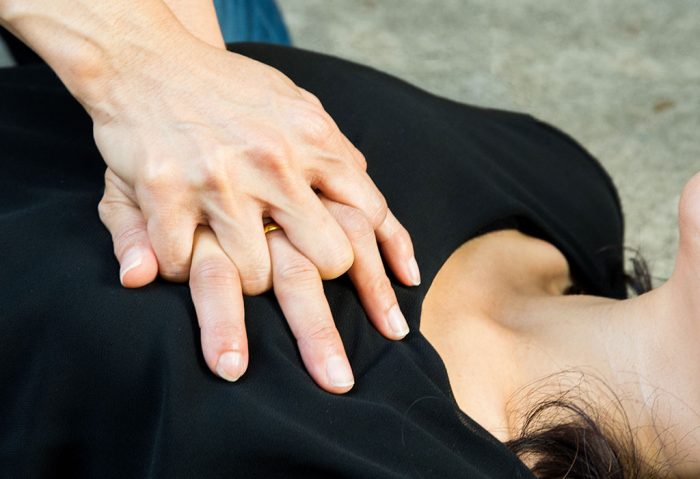Cardiac arrest can happen to anybody at any time and can be fatal if there is no timely response. Getting help at the right time is vital in ensuring the victim remains alive and breathing. CPR skills are effective in responding to emergency cardiac arrests.
However, there is a different procedure for performing CPR when the victim is a pregnant woman. In this post, understand more about CPR on pregnant women and discover if there is a possibility of a pregnant person administering CPR if the roles are reversed.
Cardiopulmonary Resuscitation. (CPR)
CPR is a basic medical procedure performed on a person to maintain blood flow and restart the heart during a heart attack.
It is an immediate intervention administered in conditions that hinder proper blood circulation to the most important body organs and preserve lives until a trained medical provider takes charge. 
Is it safe to administer CPR on a pregnant woman?
As long as it is performed appropriately, it is absolutely safe to provide CPR on a pregnant person if necessary. Anyone can give it to ensure that both the mother and the baby are kept alive.
With different changes that take place on the body during pregnancy, some instances make it necessary for CPR on a pregnant woman.
Here are some conditions that might call for CPR during pregnancy.
- Variations in breathing patterns.
During pregnancy, the demand for oxygen increases since there is a need to support both the mother and the baby. This demand increases over the months as the baby grows.
Additionally, the diaphragm of a pregnant woman decreases in space to accommodate the growing baby, leading to frequent breathing problems and exhaustion.
- Changes in the cardiovascular system.
To sustain the fetus, the blood in the woman’s body increases significantly while the red blood cell count remains the same, a condition that can lead to anemic symptoms in the woman.
To support the high oxygen demand in red blood cells, the heart works harder, increasing heart rate and blood output.
- Changes in the uterus.
Major changes in the woman’s body during pregnancy occur in the uterus. As the baby increases in size, the uterus expands to give a comfortable space for the fetus, causing other body organs to be displaced from their usual locations.
Most of the time, this displacement results in conditions that might prompt administering CPR procedures. 
Can a pregnant woman perform CPR?
We’ve perfectly discussed and seen that it is certainly acceptable to give mouth-to-mouth resuscitations during pregnancy, we must understand situations where the roles are reversed, and it is the pregnant person required to provide the procedure.
Various things should be considered for a pregnant woman to provide CPR procedures.
- Doctor’s recommendations.
Pregnancies are different in so many ways; it, therefore, depends on what your doctor recommends or says about the nature of your pregnancy.
While some women can be advised by their doctors to reduce doing some activities and can be put on bed rest when pregnant, some are encouraged to engage in a lot of physical activities.
Since performing the procedure is a rigorous task, you should not give mouth-to-mouth resuscitation unless you are advised by a qualified doctor while pregnant.
- The pregnancy age.
How far you are with the pregnancy can also be used as a consideration of whether a pregnant woman can deliver mouth-to-mouth resuscitation or not. During the first months of the gestation period, the woman is still flexible, and the baby has not become heavy; hence she can easily bend and get enough breath for the procedure.
Though it is advised to do light physical exercises throughout the period if there are no warning signs, at some points, it becomes hard for mothers due to increased exhaustion and shortness of breath.
If you don’t know the warning signs to check out for, you should discuss with your doctor and discover them before it gets out of hand.
Different reasons can prompt an expectant mother to give CPR; the common ones include; when the woman is the only adult within the scene, the woman is the only one with the necessary skills, or is the conscious person in the scene. 
Conclusion.
Mouth-to-mouth resuscitation is a valuable CPR procedure that aims at restarting the heart by blowing into the lungs through the mouth. This process is safe and can be easily performed on a pregnant woman by following the correct method should the need be.
However, while it is possible, there are various considerations in instances that require them to perform mouth-to-mouth resuscitation. It will need a doctor’s approval according to the health condition and the age of the pregnancy to allow one to perform CPR while pregnant.


